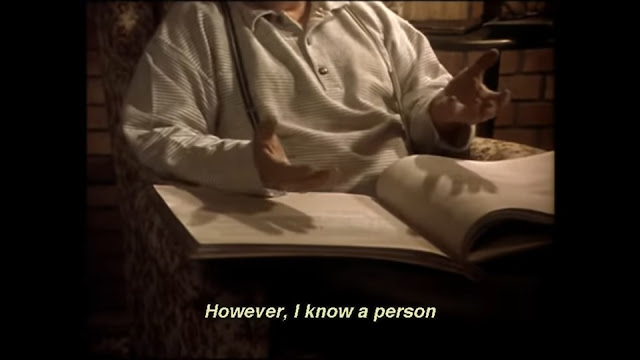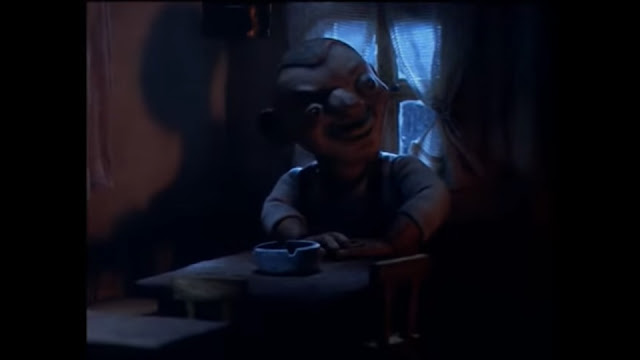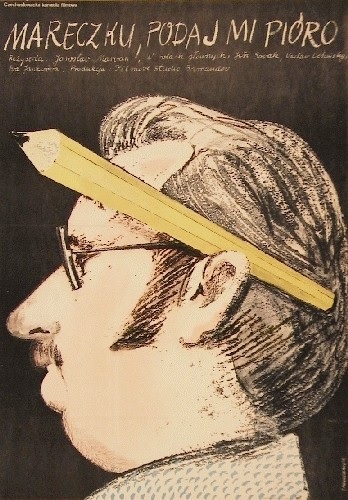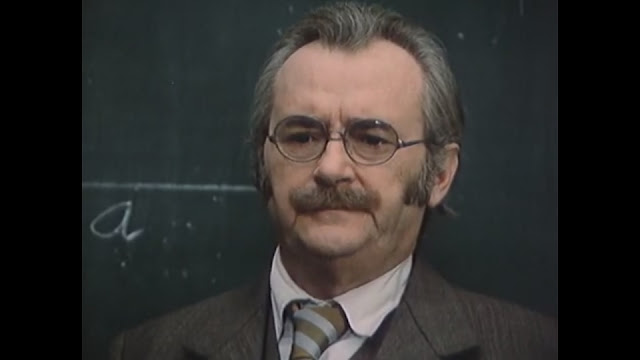We Are Not Angels
Yugoslavian cinema had many classics throughout its run, with films coming from every corner of the federation. But once the dissolution began in the 90s, Serbian filmmakers must've been hoping they could keep up the quality despite now being on their own. Luckily for us, they sure did!...Well, up until the 2000s, anyway, then most locals began groaning about movies not being like the good old days. Oh well, there are always times like that. But when your local cinema has hit the heights of today's film, it's always a good sign that it could do so again!...
Nikola is a typical bad boy. He smokes, drinks, and is always going home with a new lady. Without realising though, a former one night stands has fallen pregnant, and suddenly Nikola's life begins to change. Will he try and make it work with the mother, and be there for the baby? Or will he stick to old habits and be a playboy till he dies?...
We Are Not Angels is one of the best Serbian films there is, making for an original, slightly unique experience. It's a romantic-comedy with an edge, taking place in the [mean] streets of Belgrade There's a touch of fantasy to the movie, as an angel and devil watch over and influence the events, each trying to win their little game.
The humour is a little odd at times, urban, lowbrow (but not too much) and has the feel of a bunch of college guys getting together to make something fun...which is exactly what it is. The movie is also noted for is pop culture references, which are done in an effective way, rather than shoved unsubtly down our throats.
The story in We Are Not Angels is an effective one, and progresses nicely with plenty of fun events and setpieces. It does a really good job portraying the reality check to Nikola. We see the enjoyment he gets from his lifestyle, but also the sense that he's miserable, even if he doesn't want to accept it.
Nikola is a great lead. He's a bit of an asshole, but in a fun to watch way. He's got a good sense of humour, is experimental when mixing drinks, and has great taste in music. He' even reads! Most 'cool' Yanks stay far away from books, but Nikola's an intellectual! I also appreciate that when he learns about Marina's pregnancy he instantly believes her. Sure,
most people would probably require a little evidence, especially when
they were too drunk to even remember the dalliance, but that can be
exasperating to watch when we the viewers already know, and just want everyone
to get on with it. Thankfully that is exactly what they do here.
It's also endearing that for all his bad boy nature, at no point does he try and insist Marina have an abortion. Even when he's uncaring and wanting no part with all this he still gives her an optimistic "Sure, you should keep it". It's things like this that keep our hero likeable, despite his rough edges. As if to prove me wrong, there is a scene like that later on, though it comes late enough that it doesn't come off like he's just being a soulless dickhead, but thinking of her (if in a flawed way).
Marina romance chemistry like seeing how they both get cold feet at the end, and neither for selfish reasons either
Nikola's friends, meanwhile, are a mixed influence. The older guy is a dickhead, played mainly for laughs (I was hoping his wife would kick the shit out of him), while his other friend is a former partygoer turned 9-to-5 worker, providing a more stable and positive influence.
Angel and Devil causes the most trouble when he spoils a tender birthday moment with a hint of doubt
dreams I liked that the last was the one to galvanise him into action.
The cast here is a good one. Nikola Kojo never looked as good looking as he does here. I'd only ever seen him in movies from decades later, so it's a surprise seeing him so young! He's a great lead, selling the bad boy part of his character, and also giving a sensitivity that doesn't feel cloying. Milena Pavlović is sweet as Marina, while Branka Katić is fun as her romance-loving friend. Zoran Cvijanović And lastly there's Srđan Todorović and Uroš Đurić. The former is grungy and gnarly to look at, while the latter is freaky in an unnatural sort of way. They work great together, and give the movie plenty of...charm?
Visually this is a great movie. The streets of Belgrade look a little run-down, but in a sense that gives them character rather than just being shot like a dump. And the characters who live in this world wear such kooky fashion, fancy leather jackets, cool hairstyles, and more. Nikola's car is neat! Bright pink and shaped in such a cute way. Even the telephones are great, from Nikola's tomato phone, to Marijna's.
The music in We Are Not Angels is great! It's a 1950s-60s rock-n-roll inspired soundtrack, with some fun tunes courtesy of local band Vampiri. They sound so authentic, and really build up the mood well. There's also a song performed by the Angel which sounds...weird! Good weird, but still strange. If you like The Chameleons, you'll get a kick out of it, I'm sure.
We Are Not Angels is definitely recommended from me. If you're new to Serbian cinema, this is definitely one you should check out. A classic in just about every way there is...
We Are Not Angels 2
15 years after Nikola's daughter was born, his daughter is a growing woman, and eager to start going out with boys.
The idea of a sequel made 13 years after the first is usually unnecessary, and a recipe for disaster. But at least We Are Not Angels 2 has a valid reason. It centres on his baby all grown up, and his attempts at keeping her safe from young
Unfortunately We Are Not Angels 2 also has some of the more negative sequel tropes, such as retroactively making everyone's lives worse. The first movie ended on the perfect note. After all the struggles and adversity Nikola and Marina go through, they end the movie happy and together. Then according to this sequel things almost immediately went south, they split up, and Nikola's been slumming it as a deadbeat dad for 15 years, sleeping with airheaded skanks half his age. Talk about a regression! Not only is it depressing, and not only does it invalidate the entire plot of the first movie, but it also means Nikola never saw the success and happiness the last movie promised, nor did he give up the lifestyle that was gradually making him miserable. Here, 15 years later, nothing has changed.
With all this in mind, you're probably thinking what could possibly be positive about a movie such as this. Surely this has got to be one of the worst sequels ever made, so does it have any redeeming qualities? Why yes, it actually does! Although it comes with the proviso that you pretend the first movie never happened. Considering I saw this one first, that was quite easy for me.
On its own, We Are Not Angels 2 is a pretty funny movie. Lowbrow and a bit too vulgar at times, but it gets the job done, and has quite few laughs. Nothing gut-bustingly hilarious, but it's satisfactory. The movie is predominately made up of Nikola's underhanded but well-meaning attempts to keep his daughter safe, and this leads to plenty of amusing scenes (and some bizarre fantasies!).
The last act is satisfying and fun. The naive Sofija being taken to a shady riverside nightclub, and Nikola must save her from the worst. He gets some great moments, and so does the girl when she realises what's happening. Afterwards is a pretty sweet ending with a much needed reconciliation between Nikola and Marina (and a moment from the angel and devil that is a mix of sweet, disturbing, and kinda wholesome in a freaky way?).
The biggest missed opportunity I think for We Are Not Angels 2 is what it could have been had it not undone the last film's ending. It could be about a mature and domestic Nikola, who gets a flash from the past when he now has to keep his daughter away from guys just like him back in the day. That would've felt natural without spitting on the first movie's progress.
We Are Not Angels 2 is pretty lowbrow with the humour. Most of it is decent, and earns a few laughs, and some lines are really good, like "What a wedding today! Good thing I was armed.". Other moments might go a bit far, like the comment about the body in the grave, or the psychiatrist's treatment of his possibly suicidal patient .One might also find the vibrator flashback too gross, although
considering who it's directed at, one could let it slide.
Nikola is definitely more of a comedic character this time round. Before he was a serious-minded party boy, who'd belt you if you gave him a funny look. Here he's a schlubby and kinda pathetic middle aged guy, powerless against everything in his life, from his nagging ex, his headstrong daughter and her poor choice of dates, and even his dumb flings are freely making decisions for him.
Sofija is a fun teenager, with more sense than her father, but loves him regardless of his shortcomings. Where I didn't like her character was everything involving boys though, which is where all her good sense and judgment flies straight out the window, and she begins dragging home the absolute worst of the worst. Greasy, messy, bad boys, only interested in sex, etc. She sure does know how to pick 'em! You'd think someone this smart, with Nikola as a father (both as a teacher, and an example of a poor role model), would know better. Luckily it's not all bad, and she does get in some good and the climax is a satisfying .
Marina and her friend Bubo really get shafted in terms of character and screentime. Both are shown to be fairly vapid and inattentive, and bugger off for most of the movie, ditching Sofija in Nikola's care. This was disappointing on many levels, although at least she returns for a happy ending. Absent altogether is Nikola's sister, which is ok since there are plenty of characters, but after getting to know her it is a shame seeing her absent.
Nikola's friends from the previous movie are back again, and are basically different characters. The older guy is just as much an asshole as he was last time round, and barely appears. The psychiatrist Djura gets more time, and is a total loon here! Luckily he's an enjoyable loon to watch. I didn't get their presence in the climax though, and if it was meant to be like a fantasy sequence or what.
The acting here is decent all-round. Kojo is once again a fun lead, doing well with his changed character, and providing some laughs. Young newcomer Mirka Vasiljević is a nice, cute, and spunky presence, doing well. Zoran Cvijanović is over the top, like a live-action cartoon character, in a good way. Todorović and Đurić do good jobs again. The former clearly hasn't aged a day, while the latter now has a full head of hair, and looks more unnatural and plasticky this time round.
The visuals in aren't as good as the first. The film is shot in a much more naturalistic way, rather than stylish. It looks good, and there are a few neat little touches. Though it does make these areas look like a bit of a dump. The paintball arena looks great though, with some funny photoshopped posters.
The music here is pretty decent. Fairly standard stuff. What I really liked was the tune that plays over the end.
We Are Not Angels 2 was quickly followed up by another sequel, this time without any returning characters or actors, save for the angel and demon. It's considered to be abysmal by most, even those who get some enjoyment out of this first sequel. Now, I believe in being fair, which is why I'll perhaps watch (or at least have a squizz through) that film at a later date, but for now Especially since I couldn't find it with English subtitles, I'll just leave it for another time. Which is probably what most Serbs would recommend!
Overall, We Are Not Angels 2 is typical lowest common denominator humour, and not every joke hits the landing, but as a disposable and cheesy comedy, it's decent enough, and on par with all the dreck from the U.S. at the time. Like I said though, unfamiliarity with the first movie is key to enjoying this. But make sure to not avoid for too long though, as it's worth 100 of the sequel...

































































